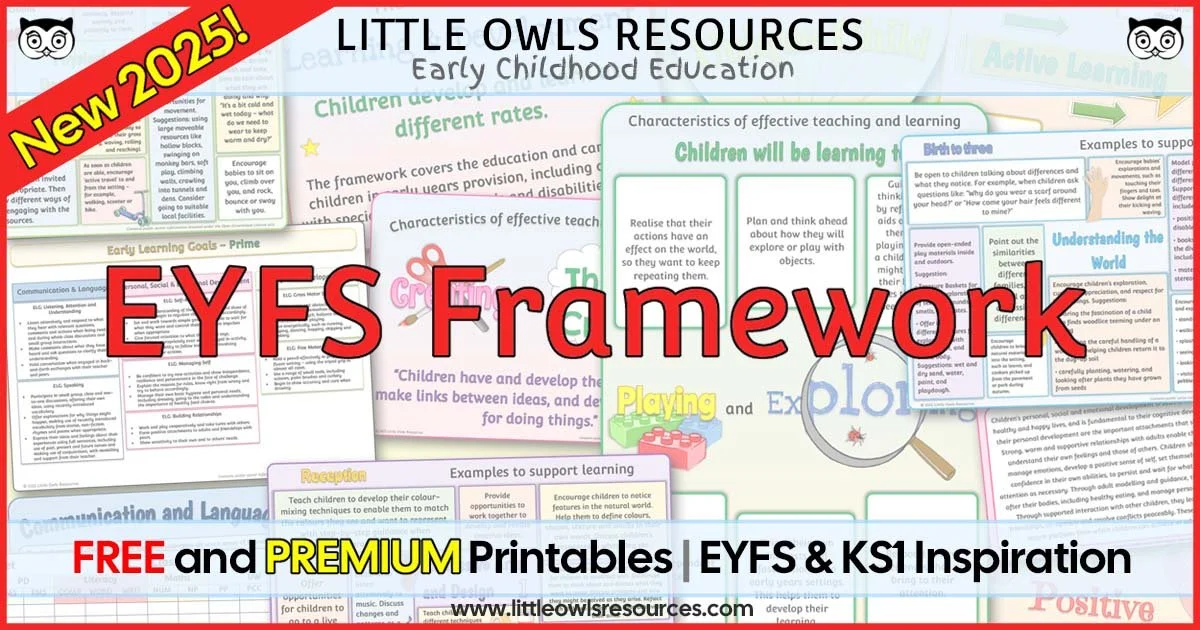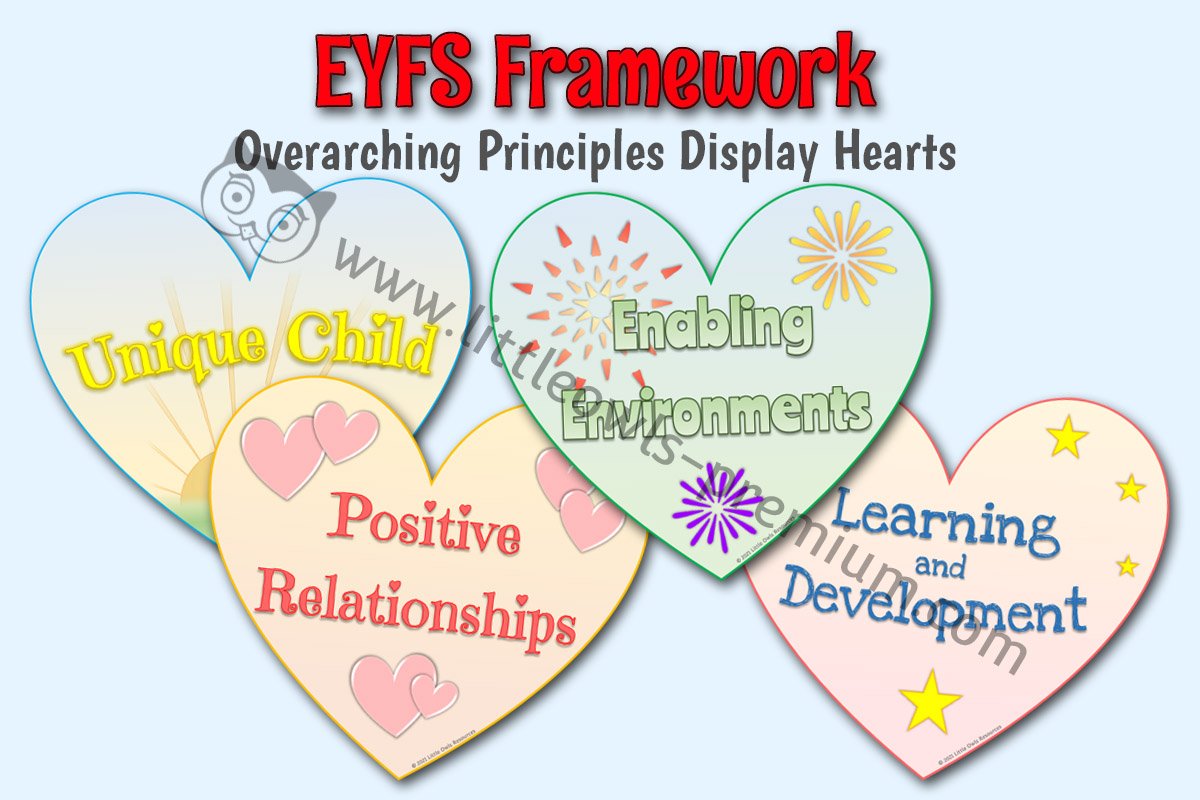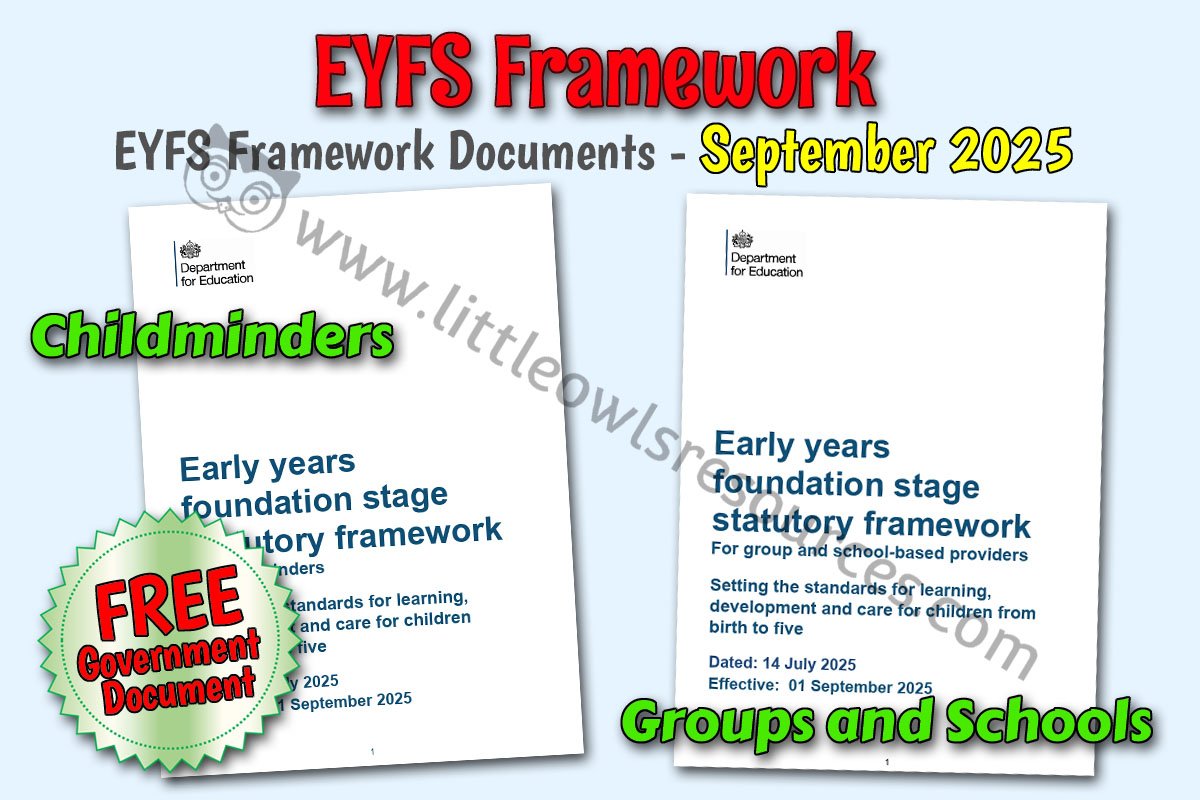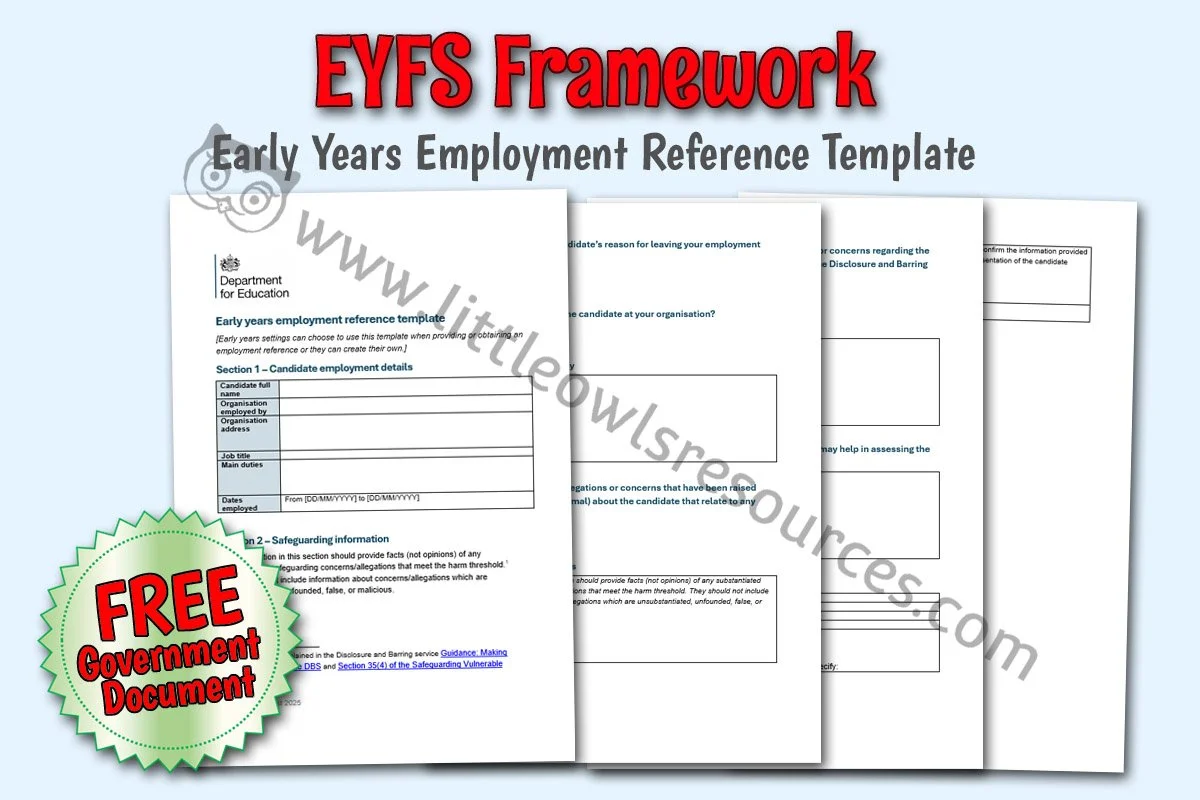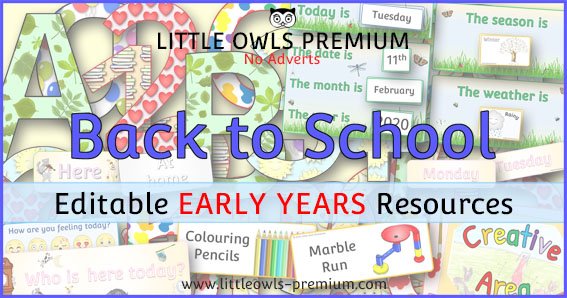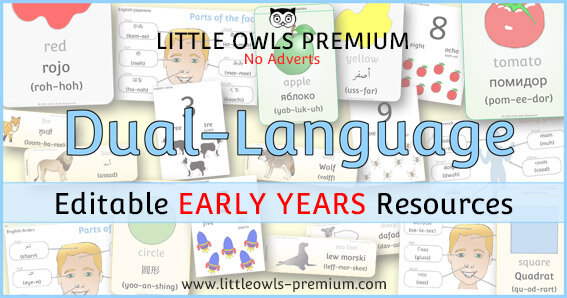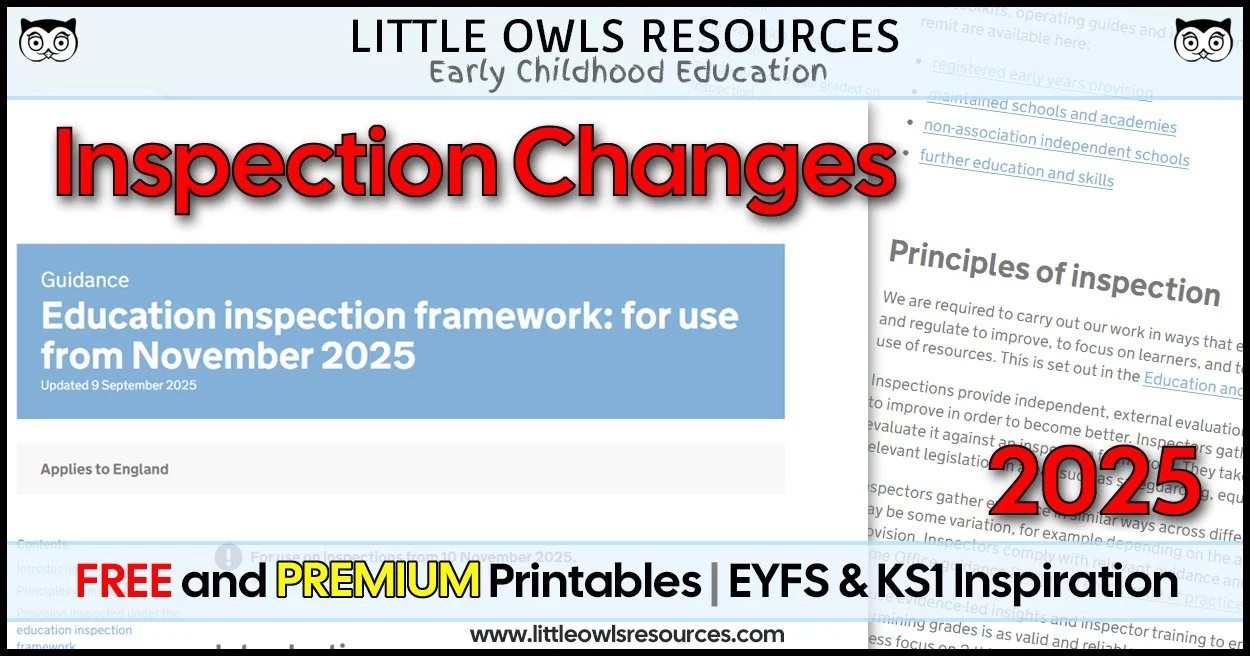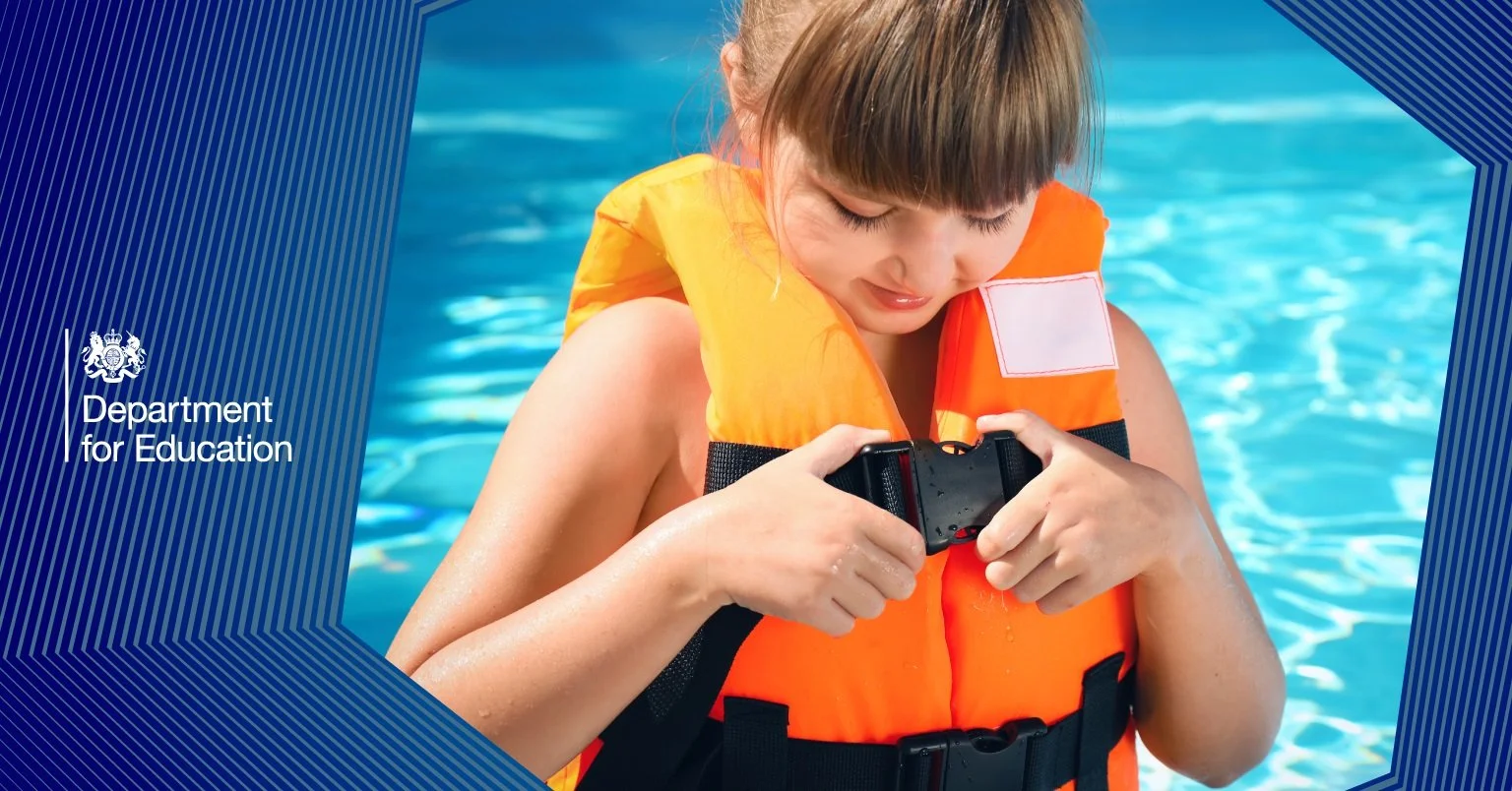New 2025 EYFS Statutory Framework for Group & School-Based Providers | What You Need to Know
[Download the Revised 2025 Early Years Foundation Stage Statutory Framework Documents.]
(Document: Department for Education / Open Government Licence v3.0)
The Early Years Foundation Stage (EYFS) Statutory Framework is the bedrock of early years education in England, setting the standards for the learning, development, and care of children from birth to five. As dedicated nursery, preschool, and reception practitioners, assistants, and teachers, you play a vital role in nurturing the youngest learners. With the new 2025 EYFS Statutory Framework for group and school-based providers coming into effect on 1st September 2025, it's essential to understand the updates to ensure your practice remains compliant, effective, and child-centred.
While the core principles of the EYFS remain steadfast – a commitment to quality provision, child-centred learning, and comprehensive safeguarding – the upcoming changes aim to refine and strengthen key areas. The Department for Education (DfE) has listened to feedback from the sector, leading to updates that primarily focus on enhancing safeguarding measures and clarifying existing expectations.
Here's a breakdown of the key changes you need to know, along with how our printable resources can support you in implementing them:
Core EYFS Principles: Remaining Strong
Before diving into the changes, it's worth reiterating that the fundamental pillars of the EYFS, which guide your daily practice, remain in place. Four guiding principles should shape practice in early years.
These are the Overarching Principles:
A Unique Child: Every child is a competent learner from birth, who can be resilient, capable, confident, and self-assured.
Positive Relationships: Children learn to be strong and independent through positive relationships. The role of the Key Person is still paramount. Our 'Hi! I'm Your Child's Key Person!' - Template Sheets and Key Children Charts/Posters (Flowers, Balloons, Colours) are perfect for establishing and displaying these crucial connections.
Enabling Environments: The environment plays a key role in supporting and extending children's development and learning. Children learn and develop well in enabling environments with teaching and support from adults, who respond to their individual interests and needs and help them to build their learning over time. Our search function (available at the top of every page) allows you to quickly search for inspiration and educational resources surrounding a child’s particular interest. We have also developed ‘Child Interests Planning Templates’ that are available on our ‘Planning’ page.
Learning and Development: Children develop and learn in different ways and at different rates. All areas of learning and development are important and interconnected. Find out more about the characteristics of effective teaching and learning with the aid of our collection of our informative and engaging prompts.
(Our Overarching Principles Display Materials can help you keep these vital principles at the forefront of your setting.)
Highlighting the Key Changes for Group & School-Based Providers:
The updates in the 2025 framework primarily reinforce and clarify existing expectations, with a strong emphasis on safeguarding. Here's what's new and what it means for your setting:
1. Enhanced Safeguarding and Safer Recruitment:
This is a significant area of focus in the new framework, aiming to strengthen procedures for keeping children safe.
Safer Recruitment Practices:
Previous: Settings were expected to have robust recruitment procedures.
New: The framework now explicitly requires providers to obtain and verify professional references for all new staff members before hiring. These references should ideally come from senior individuals (e.g., current employers, training providers) and open references or those written by family members should be avoided. Safeguarding policies must now include clear procedures for checking staff suitability, ensuring only suitable individuals are recruited.
Action for your setting: Review and update your recruitment policies to reflect these explicit requirements for obtaining and verifying references. Ensure your safeguarding policy clearly outlines these procedures.
Printable downloads our team at ‘Little Owls Resources’ have recently created or adapted to meet the requirements pertaining to this aspect of the revised 2025 EYFS Framework:
Strengthened Child Absence Policies:
Previous: Settings were expected to monitor attendance.
New: Providers must now follow up on prolonged or unexplained child absences promptly. This includes holding at least two emergency contact details per child and identifying any patterns or concerns linked to absences, escalating to safeguarding services if necessary. Your attendance policy should clearly outline these expectations and procedures.
Action for your setting: Review and update your absence reporting and follow-up procedures. Ensure you have robust systems for tracking attendance and a clear escalation process for unexplained or prolonged absences.
Printable downloads our team at ‘Little Owls Resources’ have recently created or adapted to meet the requirements pertaining to this aspect of the revised 2025 EYFS Framework:
Our existing Child Record Forms can be used to ensure you capture those essential additional emergency contacts.
Enhanced Safeguarding Training Requirements:
Previous: Staff were required to have safeguarding training.
New: The framework now includes a Safeguarding Training Criteria Annex (Annex C) outlining essential training topics. Safeguarding policies must now detail how training is delivered and how staff apply their knowledge in practice. Designated Safeguarding Leads (DSLs) are required to have updated, mandatory training every two years, with annual refreshers recommended. The wording for group-based providers has specifically changed from "lead practitioner" to "designated safeguarding lead (DSL)" for clarity in the framework.
Action for your setting: Ensure your safeguarding training programme aligns with the new Annex C. Document not just that training takes place, but how it's delivered and how practitioners are supported to embed this knowledge in their daily interactions. Consider reviewing your Safeguarding and Welfare Policies to ensure they reflect these enhanced training and reporting requirements. Our Risk-Benefit Assessment Forms and Daily Safety Checklists continue to be valuable tools for embedding a culture of safety.
Printable downloads our team at ‘Little Owls Resources’ have recently created or adapted to meet the requirements pertaining to this aspect of the revised 2025 EYFS Framework:
Mandatory Paediatric First Aid (PFA) for Trainees:
Previous: PFA was required for qualified practitioners counting in ratios.
New: Early years students and trainees must now have valid PFA training to be counted in staff-to-child ratios at the level below their qualification level. Providers must choose a recognised, accredited PFA training provider.
Action for your setting: Review your staffing arrangements, particularly concerning trainees and students, to ensure they meet this new PFA requirement if they are to be included in ratios.
Whistleblowing Procedures:
New: The framework introduces new requirements to support and protect staff who raise concerns about unsafe practices or misconduct.
Action for your setting: Ensure your safeguarding policies clearly outline whistleblowing procedures, making staff aware of how to raise concerns confidently and safely.
2. Safer Eating and Nutrition:
Previous: General requirements for healthy eating.
New: Where possible, a member of staff should sit facing children while they eat to help prevent choking, prevent food sharing, and be aware of unexpected allergic reactions. Providers must obtain information about special dietary requirements and allergies before a child is admitted and ensure this is kept up to date and shared with all staff. They must also have ongoing discussions with parents about the stage their child is at with introducing solid foods.
Action for your setting: Review your mealtime routines and supervision practices. Ensure all staff are fully aware of children's dietary needs and allergies. Our existing resources within our free topics ‘Teeth and Oral Health’ and ‘Food’ remain highly relevant.
Printable downloads our team at ‘Little Owls Resources’ have recently created or adapted to meet the requirements pertaining to this aspect of the revised 2025 EYFS Framework:
Additional support material based on new non-statutory nutrition guidance coming soon.
3. Toileting and Privacy:
Previous: Requirements for hygienic changing facilities.
New: Providers must ensure that children's privacy is considered and balanced with safeguarding and support needs during nappy changing and toileting.
Action for your setting: Reflect on your current toileting and changing procedures to ensure they uphold children's privacy while maintaining essential safeguarding oversight.
4. Clarifications and Streamlining:
The DfE has also made minor clarifications to existing policies, including spelling and grammar corrections, to enhance the clarity and understanding of the framework. There is also a continued focus on reducing unnecessary paperwork to allow educators more time for direct interaction with children.
Action for your setting: While not a direct change in practice, this highlights the DfE's commitment to making the framework more user-friendly. Our Planning & Assessment Tools are designed with this in mind, aiming to streamline your documentation without compromising quality.
[Ensure you download and thoroughly read the new "2025 EYFS Statutory Framework for group and school-based providers (effective from 1 September 2025)" on our website or directly from the GOV.UK website in order to explore the details of these changes further.]
How Our Resources Can Support You:
Our website offers a wealth of printable resources designed to support your implementation of the EYFS Framework. Many of our existing resources align perfectly with the updated framework, and we're always looking to expand our offerings to meet your evolving needs.
Supporting Learning and Development:
The core of the EYFS learning and development requirements remains the same. Our extensive range of resources for each Area of Learning and Development will continue to be invaluable:
Development Matters Support Examples for Birth to 3, 3 and 4 year olds, and Reception, covering all seven areas (Communication and Language, PSED, Physical Development, Literacy, Mathematics, Understanding the World, Expressive Arts and Design). These can help you with your Planning & Assessment.
Our informative and engaging prompts regarding effective Teaching and Learning Characteristics are perfect for promoting the characteristics of effective learning.
Our ‘Development Matters Quote Posters’ and 'Seven key features of effective practice‘ resources help embed pedagogical understanding.
For ongoing assessment, our Observation Sheet Template, Observation Checkpoint Prompts, and Development Matters Statements & ELG resources remain essential.
For the end of the EYFS, our ELG Overview Sheets and ELG Class Assessment Sheets will assist with the Early Learning Goals, and EYFS End of Year Progress Report Templates support reporting.
Remember to also utilise our Age 2 Progress Check Template for those statutory assessments.
Supporting Safeguarding and Welfare:
With the heightened focus on safeguarding in the 2025 framework, our existing resources become even more crucial:
Child Record Forms are vital for maintaining up-to-date information, including the newly emphasised emergency contact details.
The 'Stay Healthy' section of our website, including topics like ‘Mental Health’, ‘Handwashing & Hygiene’, ‘Teeth & Oral Health’, ‘Emotions and Feelings’, ‘Eye Health’, ‘Exercise’, ‘Food’, ‘Road Safety’ and ‘Sun Safety’, directly supports the requirement to promote good health.
Supporting Inclusivity and Diverse Needs:
The framework continues to emphasise supporting children with English as an additional language (EAL) and Special Educational Needs and Disabilities (SEND). Our developing ‘Dual-Language' resources will be beneficial for EAL children, and our ‘Picture Communication’ resources and recently developed ‘Autism’ hub page are designed with SEND in mind.
Looking Ahead:
The 2025 EYFS Statutory Framework for group and school-based providers represents a commitment to continuously improving the quality and safety of early years provision. By staying informed about these changes and proactively adapting your practices, you can ensure your nursery, preschool, or reception class continues to provide an exceptional foundation for every child's learning journey.
We encourage you to familiarise yourselves thoroughly with the new statutory document as it becomes officially published. Our website will continue to be a valuable resource, providing you with the printables you need to navigate these changes confidently and effectively. We are committed to supporting you in delivering the very best early years education and care.
FREE Educational Materials we have to support Group & School-Based Providers | EYFS Framework
Free support materials to aid providers such as Preschool or Nursery Practitioners and Reception Teachers in implementing the 2025 EYFS Statutory Framework for Group & School-Based Providers:
Core ‘EYFS Framework’ resources to support Group & School-Based Providers
(Please visit our ‘EYFS Framework’ hub page for our full collection of resources.)
Additional ‘EYFS Framework’ resources for Group & School-Based Providers
Select the buttons below to explore our Little Owls Resources educational materials on the topics below:
Additional EYFS & KS1 Articles
A major overhaul of the national curriculum in England has been announced following the publication of the independent Curriculum and Assessment Review. For those working in the Early Years Foundation Stage (EYFS) and Key Stage 1 (KS1), the changes signal a renewed focus on practical life skills, digital literacy, and enriching learning experiences…
The world of early years education is constantly evolving, and with it, the frameworks that guide and assess our invaluable work. Come November 2025, a significant shift will occur as the new Education Inspection Framework (EIF) comes into effect, bringing with it some crucial changes…
With the new 2025 EYFS Statutory Framework for group and school-based providers coming into effect on 1st September 2025, it's essential to understand the updates to ensure your practice remains compliant, effective…
As dedicated early years professionals, you play a vital role in nurturing the growth and development of our youngest learners. Keeping up-to-date with the latest guidelines is crucial, and today, July 14, 2025…
The Education Secretary is calling on parents to lead by example and make reading a daily habit to help reverse the decline in reading for pleasure, to help give kids the best start in life as part of the…
As we head into summer, it’s especially important that children are prepared with these skills. This year, the Royal Life Saving Society UK's Drowning Prevention Week runs from 14 June to 21…
There are several ways that schools can make changes to keep children safe in hot weather, especially as children are more at risk of becoming ill with heat-related issues than adults…


